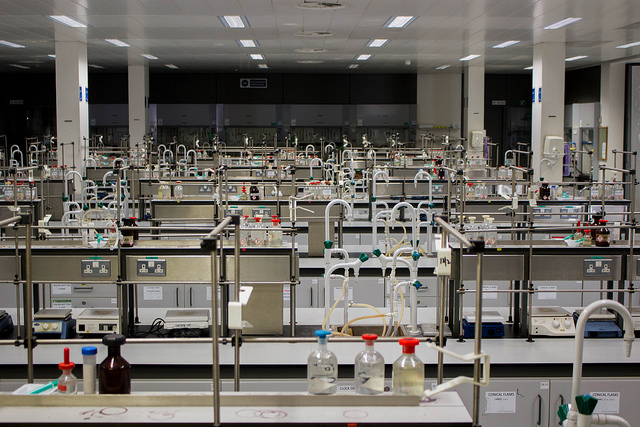Final year capstone projects in STEM courses are “under serious threat” due to underfunding and increasing student numbers, a recent Faculty Quality Report has revealed.
The report found that “there is currently no funding from the College to support SS [Senior Sophister] capstone research projects that are particularly costly in STEM-based subjects”.
“At present, these capstone projects (up to 1k euro per student) are inappropriately funded via PI [Principal Investigator] research grants”.
“There should be a clear financial structure to support the SS capstone research project, a key selling point of our UG [undergraduate] degrees”, the report added.
STEM students undertake capstone research projects in the final year of their degrees, performing an investigation under the supervision of a Trinity academic. The current iteration of the programme was implemented as part of the Trinity Education Project (TEP) for students graduating in 2019.
The report also noted that the continuation of the capstone project will be threatened by planned increases in the number of undergraduate students. A comment from the School of Genetics and Microbiology said that if undergraduate student numbers increase “it will put the SS capstone research projects in STEM under serious threat and undoubtedly the quality of SS research projects will be greatly impacted”.
The School of Biochemistry and Immunology said that the quality of capstone projects will be difficult to maintain “in an environment of increasing student numbers and insufficient grant funding”. The school also raised the need to recruit more staff and reduce the student to staff ratio to mitigate risk to capstone projects.
In an email statement to The University Times, Trinity Media Relations Officer Catherine O’Mahony, commented on the recommendations of the reports generally. She said: “We appreciate the effort that has gone into compiling these reports. All issues raised will be examined and considered in due course”.
“Since these are retrospective reports, the work has already begun and inroads have been made in addressing some of the points raised”, she added.
The Faculty of Arts, Humanities and Social Sciences (AHSS) Quality Report also raised issues regarding capstone projects undertaken by their students as well as TEP more generally.
“Workloads throughout the year have also been made heavier due to TEP, for example with cross-year teaching no longer possible, and the compulsory Capstone project”, the report said.
Both the STEM and AHSS reports mentioned that TEP has also caused problems with timetables which has limited student choice. The AHSS report said that “the European Studies programme is challenged by the current range of options available and the Law programmes are said to be less attractive to prospective students”, while the STEM report said: “Ongoing timetabling difficulties within the TEP architecture are forcing the school of Mathematics to reconsider its degree offerings”.
Changes made to the structure of the academic year as part of TEP have also caused problems.
The new academic year structure has caused issues with “turnaround times” which have been “raised every year”.
“The timelines for marking, moderation, Courts of Examiners and Courts of First Appeal are tight and place a huge burden on staff and unnecessary pressure on students”, the AHSS report said.
Problems with the structure of the academic year were also raised by the STEM faculty. The School of Chemistry said: “The short examination period puts the students (especially JS [Junior Sophister] and SS [Senior Sophister]) under considerable stress with many having 4 exams and some having up to 7 exams over a 5-day period. This was something they raised with the external examiners who flagged it in their reports”.
The short turnaround time between the reassessment period and the assignment of students to Trinity Electives – which were also implemented as part of TEP – as well as to moderatorships was also noted by the School of Chemistry.
“They find out the course they have been assigned to the Friday before a Monday start”, the school said.







